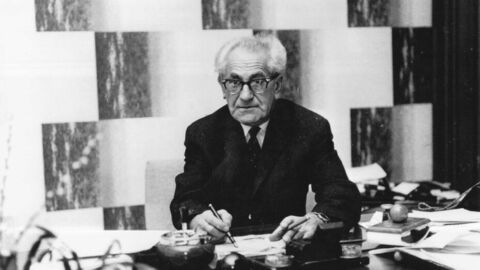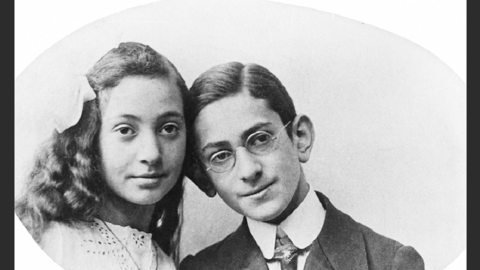Fritz Bauer’s move from his office as chief public prosecutor at the Braunschweig Higher Regional Court to the office of the Hessian chief public prosecutor marked the beginning of a new phase in the prosecution of Nazi criminals in the Federal Republic of Germany.
With Fritz Bauer, Hessian Prime Minister Georg August Zinn succeeded in bringing one of the most distinguished prosecutors of the newly founded Federal Republic of Germany to Frankfurt in 1956. Bauer, who was born at Stuttgart, Germany in 1903, studied law and economics. After obtaining his doctorate in 1927, he began his career as a judge; by 1930, he had advanced to the position of judge at the Local Court in his hometown, the youngest during the Weimar Republic. Fritz Bauer was also politically active, i.e., as a member of the Social Democratic Party of Germany (SPD), the Black, Red and Gold Banner of the Reich (Reichsbanner Schwarz-Rot-Gold), an organization founded in 1924 to protect parliamentary democracy, and the Republican Association of Judges (Republikanischen Richterbund). After the Nazi seizure of power, the new rulers not only dismissed Fritz Bauer as a judge, but also imprisoned him at Heuberg Concentration Camp for a few months. In 1936, Bauer immigrated to Denmark, from where he was barely able to escape deportation by fleeing to Sweden in 1943.

